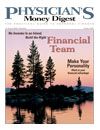Publication
Article
Physician's Money Digest
Owning Rental Property—Boon or Bust?
Author(s):
For years people have purchasedreal estate because itafforded them two benefits.First, it provided a suitableplace to live. In addition, itoften proved to be a worthwhile investment,returning considerably morethan the original purchase price whensold years later.
Kiplinger's
Today, people are still buying realestate for its future appreciation, butthey're also buying because of the positivecash flow it provides (ie, its rentalvalue). According to an article in, owning a rental propertyoffers more control over your investmentthan stocks or bonds.
Appreciation Factors
If you have any doubt about realestate appreciation, just consider thesenumbers. According to the article, theaverage price of a single-family homein the United States has risen 7.3% ayear over the past 5 years, and 5.5% ayear over the past decade. In fact, thelast time home prices fell nationallywas more than 10 years ago, duringthe fourth quarter of 1994, and thatwas by just 0.25%.
As a rental, the numbers tell anappealing story as well. Consider theexperience of one man who purchaseda duplex (two apartments) in a suburbof New York City. His mortgage, insurance,and taxes total $1700 amonth, while the two apartments rentfor $900 and $1300, respectively, plus$175 for two parking spaces. Theowner says that when all is said anddone, he's several hundred dollarsahead each month.
Location and Expenses
Kiplinger's
But there are other numbers to considerwith real estate as rental property,and they tell a slightly differentstory. According to , eventhough home prices are rising, rentalrates don't necessarily rise in tandem.For example, rental charges are up anaverage of 4.8% a year over the past 5years, and 3.4% a year over the pastdecade. Nationwide, the vacancy ratestands at 10.2%, the highest level inmore than 40 years.
Historically, the key to purchasingreal estate has been location, location,and location. That doesn't changewhen you consider owning a rentalproperty. The individual who purchasedthe duplex in suburban NewYork City lives 20 minutes from therental property. That factor, along withhis ability to perform much of the routinemaintenance himself, can have amajor impact on expenses.
As the article points out, since youwant a steady stream of potential renters,you should focus your search onproperties that would be popular withrenters. For example, fairly new, single-family homes in upscale communitiesare highly valued by transferredcorporate executives looking for temporaryliving arrangements. Anaffordable three-bedroom ranch closeto schools, public transportation, andshopping is ideal for a single parent.And a house within walking distanceof a hospital would be attractive to amedical professional.
Of course, your objective in owninga rental property is to be able torecoup enough in rent to cover yourexpenses and then some. That createspositive cash flow. However, becauserentals can, and do, stay vacant forperiods of time—in Atlanta thevacancy rate is 16.8%, comparedwith just 4.4% in New York City—the article suggests that you allow for1 month a year without rent.
In addition, make 5-year projections,including the anticipated increasedcosts for property taxes andinsurance premiums. If history is anyindication, these rates are much morelikely to increase than decline.
Ownership Tax Breaks
Kiplinger's
Another plus to owning rental propertyis that the government allows youto write off depreciation—allowing forthe wear and tear of the structure.According to , you candepreciate a building over 271/2 years,which allows you to write off about3.6% of the property's tax basis eachyear. To the extent that the depreciationoffsets your profit, you can pocketthe profit tax-free.
However, keep in mind that depreciationlowers the tax basis of yourproperty, or the amount that you willuse to figure your profit when youeventually sell. Every dollar of depreciationtoday is recaptured as an extradollar of taxable profit in the future.And unlike most capital gains, whichare currently taxed at 15%, gainsrelated to depreciation are susceptibleto a 25% rate of taxation.
Residential
Rental Property (Including Rental of
Vacation Homes)
Additional useful information onrental property, particularly as itrelates to tax matters, can be found inIRS Publication #527, . To obtain a copy,visit www.irs.gov or call 800-829-3676.
